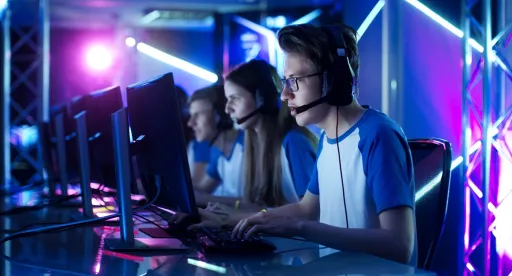Professional athletes who are “internationally recognized” are eligible for the P-1 visa and eSports (video games) at the professional level have become such major athletic events that eSports players have been granted these visas more and more often.
In 2013, the USCIS for the first time recognized an eSports player as an athlete and granted him a P-1A visa. This is a flourishing sport that has succeeded in attracting mass attention. For instance, Riot Games’ League of Legends, known as “LOL,” reportedly in 2016 was the “biggest game in the world” with over 100 million users. In that same year, more people watched the LOL World Championships than watched the NBA finals.
Once the USCIS made its initial decision that eSports was a professional sport, Danny “Shiptur” Le, an LOL gamer, became the first professional video gamer to receive a P-1 visa. Le came to the U.S. to live, train, and then compete in the world championships with prize money (at that time) of $1 million. Prior to this, gamers could come to the U.S. on B visitor visas to compete because prize money was an exception to the “no U.S. remuneration rule.” Le needed the P-1 visa because he was earning a salary from a U.S. business, which disqualified him from the B visitor visa. Today, many gamers are salaried.
Since 2013, other gamers have received P visas as athletes with an “internationally recognized high level of achievement; evidenced by a degree of skill and recognition substantially above that ordinarily encountered so that the achievement is renowned, leading or well known in more than one country.” It is also possible for an eSports athlete to apply for an O-1A visa as an individual of extraordinary ability demonstrated by sustained national or international acclaim.
The O-1A visa is valid for up to three years and can be extended in increments of up to one year. The O-1A visa does not distinguish between individual and team events.
The P-1A visa for an individual (versus a team) is valid for a limited amount of time, usually the amount of time needed to compete in a tournament or competition, but not longer than five years for an individual. However, the visa can be extended for an additional five years in order to continue or complete the event, competition, or performance. The P-1A visa distinguishes between individual and team events and imposes different rules.
Whether a P or an O visa, the USCIS has a great deal of discretion and may not (and does not) always find that eSports meet the requirements.
Recently, a player on the Overwatch League team, Chengudu Hunters, was refused entrance and the team was forced to travel to the U.S. without him. Previously, in the inaugural season of Overwatch League, the Shanghai Dragons also dealt with visa issues after signing two players mid-season. This uncertainty makes it difficult for team owners interested in recruiting players from abroad.
But eSports are becoming more and more like other professional sports and this may help to allay USCIS’ doubts about this new category and its participants.
Not only are there eSports leagues and eSports owners, but there are eSports franchises. LOL has established a player’s association that is like a union and eSports may even make its debut in the 2024 Paris Olympics. It has been suggested that with wealthy and famous owners comes lobbying power that might lead to formal immigration legislation for gamers as athletes.





 />i
/>i

